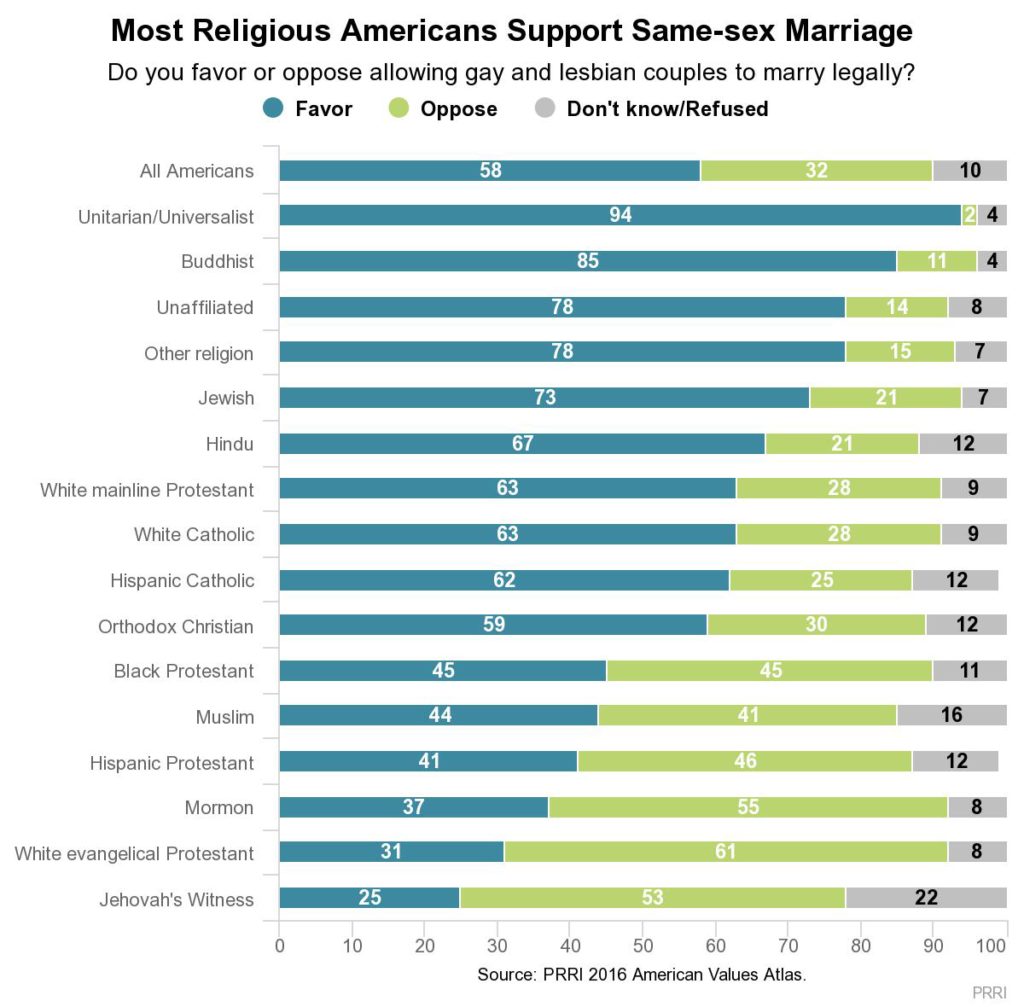President Donald Trump is set to sign a new executive action Thursday that would allow individuals and organizations who have religious or sincerely held moral objections to same-sex relationships and sex outside of marriage, or who deny the existence of transgender identity, to discriminate without fear of legal consequences. A draft of the proposed executive order was leaked in February 2017, laying out proposed protections for a set of religious beliefs related to sexuality and gender held by an increasing minority of both Christians and the general population at large.
New PRRI analysis, drawn from a February 2017 survey and a data set of more than 40,500 interviews conducted throughout 2016 as part of PRRI’s American Values Atlas, reveals that most Americans do not support the protections included in the executive action.
Fewer than half of Catholics (46 percent), four in ten (40 percent) white mainline Protestants and fewer than one in four (23 percent) religiously unaffiliated Americans agree that sex is only morally permissible when it occurs within the confines of marriage between a man and a woman. However, roughly eight in ten (83 percent) white evangelical Protestants and about six in ten (63 percent) nonwhite Protestants support this belief.
Most Americans support the Johnson Amendment. More than seven in ten (71 percent) Americans oppose allowing churches and places of worship to endorse political candidates while retaining their tax-exempt status, compared to only 22 percent who favor such a policy. All major religious groups in the country oppose allowing churches to endorse candidates while retaining their tax-exempt status. Only about one-third (36 percent) of white evangelical Protestants favor allowing churches to endorse candidates, compared to a majority (56 percent) who oppose it. Even fewer white mainline Protestants (23 percent), Catholics (25 percent), black Protestants (19 percent), and religiously unaffiliated Americans (12 percent) support churches endorsing political candidates.
Most Americans favor a contraception mandate. Two-thirds (67 percent) of the public favor requiring employers to provide employees with health care plans that cover contraception or birth control at no cost. This includes majorities of all major religious groups: white evangelical Protestants (54 percent), nonwhite Protestants (58 percent), Catholics (60 percent), white mainline Protestants (75 percent), and the religiously unaffiliated (81 percent).
Most Americans say transgender people face discrimination. The executive order may also authorize discrimination based on the belief that gender and biological sex is objectively determined at birth. More than six in ten Americans (64 percent) say that transgender individuals already face a lot of discrimination in the U.S. today. This attitude is shared by majorities of major religious groups, including 52 percent of white evangelical Protestants.
Updated on May 4, 2017.
